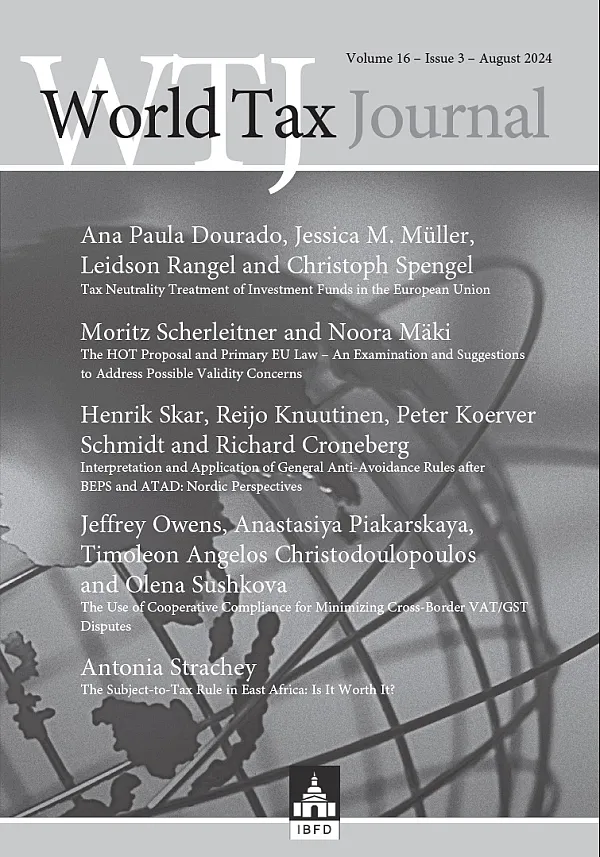European Union Tax Coordination: EU Tax Neutrality

Summary
This multidisciplinary project was carried out between CIDEEFF, the University of Manheim and the Centre for European Economic Research (ZEW). It examined the legal consequences and assessed the economic impact of the Court of Justice of the European Union (CJEU) decisions, in terms of tax neutrality within the European Union (EU).
Methodology
We assessed the impact of the differing tax treatment of investment funds in three relevant jurisdictions: Portugal, Germany, and Luxembourg before and after a landmark case (the CJEU Allianzgi-Fonds decision). We built on the well-established methodology put forward by Devereux & Griffith (1999, 2003). We calculated the effective tax levels for different scenarios including the key parameters, effective average tax rate (EATR) and cost of capital (CoC). Overall, the methodology went beyond the pure consideration of the statutory tax rate as it included further tax parameters, like country-specific regulations on tax systems, tax base, and tax rates on company and shareholder level. The impact of these tax parameters was measured in terms of after-tax returns of corporate investments. For the country-specific tax information, we relied on ZEW (ZEW, Effective Tax Level Using the Devereux/Griffith Methodology – Final Report 2021 (2022) and our own additional research.
Findings and Proposals
As a result of the Allianzgi-Fonds landmark case, our papers examined whether the Portuguese CIT-exemption extended to non-resident UCITS would lead to tax neutrality treatment of investment funds in the EU.
Overall, we confirmed that the abolishment of the discriminatory withholding tax can considerably reduce the effective tax levels for cross-border investments. Moreover, the abolishment also diminishes the domestic investment bias. Nonetheless, the results did not confirm the achievement of neutrality. We therefore recommended self-restraint by the Court of Justice and tax harmonization.
Therefore, in line with previous research we conclude that a comprehensive harmonization of Member States’ tax rules on investment funds by means of a Directive (positive integration) seems necessary to implement an internal market without tax distortions to investment. In face of the results, it is also legitimate to ask whether the CJEU should restrain itself from a formal interpretation of discrimination and restriction - at least, when the CJEU, in complex cases such as the one we examined in this paper, is not sure of the results that such formal interpretation will lead to.
Publications
Dourado, A. et al. (2024), “Tax Neutrality Treatment of Investment Funds in the European Union”, World Tax Journal, 16, 3. Available at: https://www.ibfd.org/shop/journal/tax-neutrality-treatment-investment-funds-european-union. – colocar a imagem do World Tax Journal à frente
Dourado, A. et al. (2024), “Discriminatory Taxation of Investment Funds in the European Union: How the CJEU Case-Law Keeps Ignoring Neutrality”, Zew Discussion Paper, 24. Available at: https://www.zew.de/publikationen/discriminatory-taxation-of-investment-funds-in-the-european-union-how-the-cjeu-case-law-keeps-ignoring-neutrality.
Project Team
Prof. Dr. Ana Paula Dourado CIDEEFF
Dr. Jessica Müller Business School, Univ. of Manheim
Leidson Rangel PhD candidate, CIDEEFF
Prof. Dr. Christoph Spengel Chair of Business Administration and Taxation, Business School, Univ. of Manheim
Duration: 2024
Project closed
Recent Initiatives

